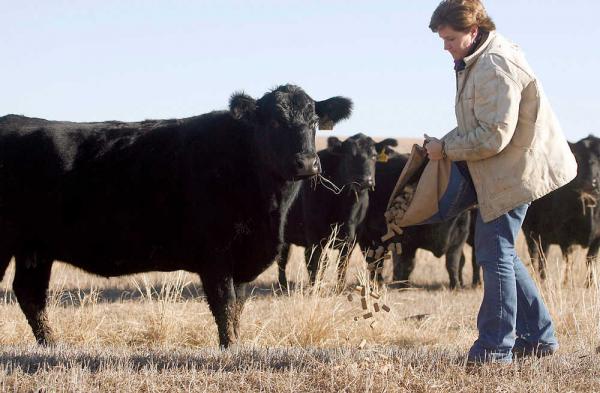December 5, 2024 – Nitrate poisoning in cattle is a critical issue that can occur when animals consume feed or forage with high nitrate levels, often due to environmental or agricultural conditions. Texas A&M AgriLife Extension provides guidelines for understanding and managing this risk effectively.
Causes of Nitrate Poisoning
Forages with High Nitrate Content: Crops like sorghum, millet, and certain weeds (e.g., pigweed, Johnsongrass) are prone to nitrate accumulation, especially during drought or after heavy fertilization.
Environmental Stress: Drought, frost, or cloudy conditions can reduce plant metabolism, leading to nitrate buildup.
Improper Feeding Practices: Feeding untested forage without recognizing its nitrate levels.
Symptoms in Cattle
Nitrate poisoning reduces the oxygen-carrying capacity of blood, causing: Rapid or labored breathing. Muscle tremors or weakness. Staggering or collapsing. Cyanosis (blue discoloration of mucous membranes). Death in severe cases, often within hours.
Diagnosis
Test suspect forage or water for nitrate levels before feeding. Post-mortem examination may reveal brown-colored blood in affected animals.
Management and Prevention
Contact your veterinarian.
Testing Forages: Utilize nitrate testing kits or send samples to a lab. Safe levels: below 0.5% nitrate (dry matter). Risky levels: above 1.5%, requiring dilution with low-nitrate feed.
Feeding Strategies:
Gradually introduce high-nitrate forage to acclimate cattle. Dilute with other feeds to reduce overall nitrate intake. Feed high-nitrate forage in smaller portions after cattle have consumed other feed.
Supplementation:
Provide adequate carbohydrates (e.g., grains) to help reduce nitrate conversion to toxic nitrites in the rumen.
Avoid Stress on Plants:
Harvest or graze forage under optimal growth conditions.
Delay grazing for 3–5 days after rainfall to allow plants to metabolize accumulated nitrates.
Emergency Treatment
If you suspect nitrate poisoning:
Contact your local veterinarian.
Remove cattle from the suspected source immediately.
For more detailed advice, please contact the Hopkins County Extension Office at 903-885-3443 or your local veterinarian.







